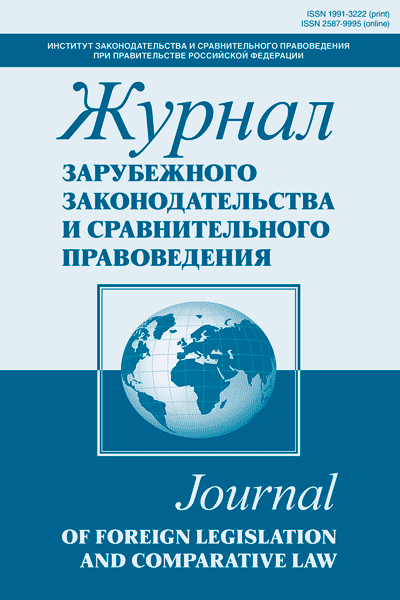The article compares the legal regulation and the law enforcement practice relating to the conduct of environmental assessment in the Russian Federation, procedures for environmental assessment, which is applicable abroad (USA, EU, China). Through the use of historical, comparative legal methods of research concludes that the national system of environmental assessment in the Russian Federation, including the assessment of impact of perspective economic and other activities on environment and ecological examination, is not an effective one and does not meet international standards of environmental assessment. The article analyzes the reasons for the ineffectiveness of environmental assessment in the Russian Federation, identifies the main differences of the Russian model of environmental assessment from their foreign counterparts. The main differences between Russian and foreign models are as follows: stages of the environmental assessment process (no stages of screening and scoping), conduct environmental assessment at the earliest stage of economic activity and at the stage of preparation of project documentation, the lack of methodology for the environmental assessment process, the lack of differentiation of environmental assessment on the individual direction of research, etc. These differences lead to the imperfection and ineffectiveness of environmental assessment in the Russian Federation and need to be addressed. The results can be used in legislative activities in the preparation of draft normative legal acts in the educational activity.
EIA, environmental assessment, environmental protection, environmental assessment, public hearings, public participation.
1. Becker H. A. Social Impact Assessment: Method and Experience in Europe, North America and the Developing World. L.; N. Y., 2004.
2. Birley M. Health Impact Assessment. Principles and Practice. L.; N. Y., 2011.
3. Koivurova T., Lesser P. Environmental Impact Assessment in the Arctic. A Guide to Best Practice. L.; N. Y., 2016.
4. Lerche I., Glaesser W. Environmental Risk Assessment. Quantitative Measures, Anthropogenic Influences, Human Impact. Behlin, 2010.
5. Marsden S. Strategic Environmental Assessment in International and European Law: A Practitioner’s Guide. L., 2008.
6. Mohammad Ali Sustainability Assessment. Context of Resource and Environmental Policy. Oxford, 2013.
7. Ramachandra T. V. Cumulative Environmental Impact Assessment. N. Y., 2007.
8. Therivel R. Strategic Environmental Assessment in Action. 2nd ed. Routledge, 2012.
9. Treweek J. Ecological Impact Assessment. L., 1999.
10. Bogolyubov S. A. Glavnoe - prognozirovanie realizatsii ekologicheskoy politiki. Ekologicheskoe pravo. 2011. № 6.
11. Boltanova E. S. Znachenie norm ob ekspertize proektnoy dokumentatsii v sisteme trebovaniy po obespecheniyu okhrany okruzhayushchey sredy. Sovremennoe pravo. 2014. № 7.
12. Vylegzhanina E. E. Mezhdunarodno-pravovoe razvitie protsedury otsenki vozdeystviya khozyaystvennoy deyatel´nosti na okruzhayushchuyu sredu. Ekologicheskoe pravo. 2005. № 3.
13. Kichigin N. V. Rol´ ekologicheskoy ekspertizy i protsedury OVOS v obespechenii ekologicheskoy sfery obshchestva. Mezhdunarodno-pravovoe i natsional´noe regulirovanie ekologicheskoy sfery obshchestva: sb. st. / sost. Yu. S. Shemshuchenko, S. A. Bogolyubov. M., 2011.
14. Khludeneva N. I. Perspektivy razvitiya pravovoy okhrany arkticheskikh ekosistem. Zhurnal rossiyskogo prava. 2015. № 11.





